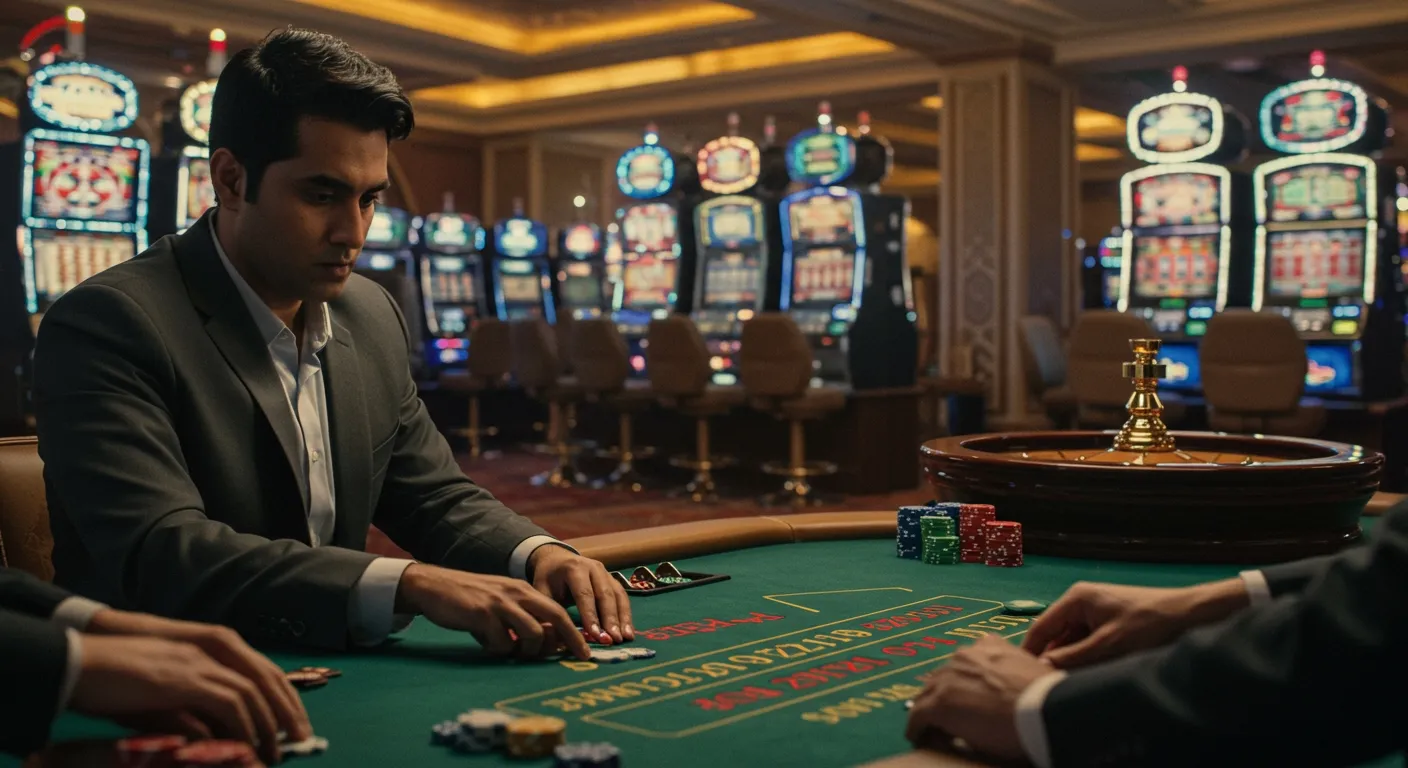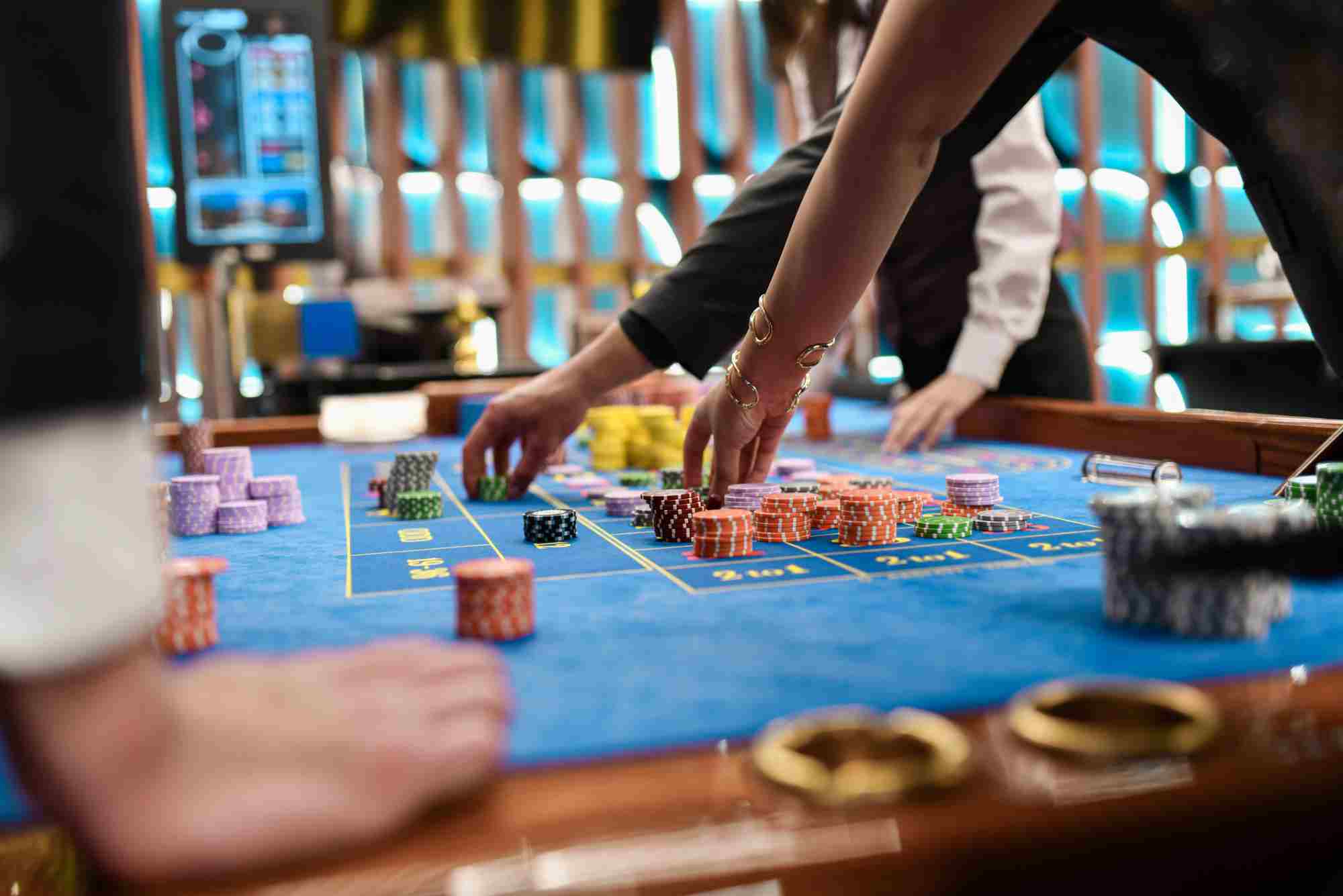If you’ve ever walked into a casino — physical or online — you’ve likely wondered whether the outcome of each game comes down to pure luck or a player’s skill. It’s a question that has divided gamblers, mathematicians, and psychologists for decades. While some games feel entirely random, others seem to reward strategic thinking, observation, and experience. So, which is it? Are casino bets luck-driven, or can skill really shift the odds in your favor?
As someone who’s spent years studying and experiencing both sides of gambling — from strategy-heavy poker nights to quick spins on the roulette wheel — I can confidently say the answer lies somewhere in between. Let’s dive into how chance and skill work together in casino games, and why understanding this balance can change how you play and how much you win (or lose).
The Role of Luck in Casino Games
Luck is the foundation of almost every casino game. It’s what makes gambling exciting and unpredictable. Games like slots, roulette, or baccarat rely heavily on chance. You can’t control which number the roulette ball lands on or what combination appears on a slot machine. That randomness is intentional — casinos use it to ensure fairness and maintain their profit margin, known as the “house edge.”
In pure luck-based games, every player has the same mathematical probability of winning. No matter how experienced or inexperienced you are, each spin or roll is independent. This randomness is powered by mechanical devices in land-based casinos and Random Number Generators (RNGs) in online ones. RNGs are complex algorithms that produce random outcomes, ensuring no pattern or prediction can influence results.
This element of unpredictability is what keeps players coming back. After all, the idea that “anything can happen” is thrilling. But it’s also what makes luck a double-edged sword — because no matter how confident you feel, outcomes remain statistically uncertain.
Skill-Based Play: The Player’s Advantage
While luck dominates many casino games, others give players an opportunity to use strategy and skill to influence results. Classic examples include poker, blackjack, and sports betting. These games have defined rules and probabilities that can be studied and exploited through knowledge, observation, and practice.
In poker, for instance, success depends on more than just the cards you’re dealt. Reading your opponents, understanding betting psychology, and managing your bankroll all contribute to long-term success. Similarly, blackjack involves probability calculations — knowing when to hit, stand, or split can significantly improve your odds against the dealer.
Sports betting, too, introduces a layer of skill. On uk betting sites, for example, punters analyze statistics, team performance, weather conditions, and even player injuries to make informed wagers. It’s not just guessing — it’s data-driven decision-making. Experienced bettors treat gambling like an investment, studying patterns and applying logic rather than depending on blind luck.
Skill-based play also demands discipline. Unlike luck-based games where results are immediate and random, skilled betting requires patience and emotional control. You must accept short-term losses in pursuit of long-term gains — something luck-driven players rarely manage.
Understanding the House Edge
To truly understand whether casino bets are luck or skill-based, you have to grasp the concept of the “house edge.” This is the built-in mathematical advantage that ensures casinos make a profit over time. Every game has it — but how it affects players varies depending on the role of luck versus skill.
In roulette, for example, the house edge comes from the inclusion of zero (and double zero in American roulette), slightly reducing the player’s chances of winning even-money bets. No matter what strategy you apply, the edge remains constant. Over thousands of spins, the casino is statistically guaranteed to win.
In blackjack, however, skilled players can minimize the house edge by using optimal strategies. By following mathematically proven decision charts, you can reduce the casino’s advantage from around 2% to less than 0.5%. That’s where skill makes a measurable difference — while you can’t eliminate luck, you can improve your position against it.
This balance between chance and control is what defines gambling’s enduring allure. It’s a game between randomness and reason, where your understanding of probability can stretch your odds, but never erase the role of fate.
The Psychology Behind Luck and Skill
Humans are naturally drawn to games of chance because they trigger the brain’s reward system. Each win releases dopamine, creating a powerful emotional rush. Casinos design their environments — flashing lights, upbeat music, and frequent small wins — to reinforce this psychological loop.
But when skill enters the mix, the psychological experience shifts. Skilled games engage the logical and analytical parts of the brain. They offer a sense of agency — the belief that your actions matter. This feeling of control is deeply satisfying and is one reason why poker and blackjack attract strategic thinkers, while slots appeal to those chasing quick excitement.
The interesting thing is that even in games of pure luck, players often develop “illusion of control” biases. For instance, many slot players believe timing or button-pressing technique affects outcomes. Psychologically, this illusion keeps people playing longer, even though mathematically it makes no difference. Understanding this mental tug-of-war between luck and control can help you gamble more responsibly.
Can Skill Overcome Luck?
In the short term, luck always wins. Even the best poker player can lose to a novice in a single hand. However, in the long run, skill prevails — especially in games that allow for strategy. This is why professional poker players can sustain careers, while no one can consistently profit from roulette.
But even skill has its limits. Gambling outcomes are influenced by variance — the natural ups and downs in short-term results. Skilled players understand variance and build strategies to withstand it. They don’t chase losses or bet emotionally. Instead, they make consistent, logical decisions that pay off over time.
So while you can’t control luck, you can control how you respond to it. That’s the real essence of gambling mastery.
The Hybrid Nature of Modern Casinos
Modern casinos blur the line between skill and chance more than ever before. Developers have introduced hybrid games that combine strategy with random outcomes. For instance, skill-based slot machines allow players to influence bonus rounds with reflex-based mini-games. Some online platforms even use AI-driven competitions where reaction time and decision-making affect rewards.
This shift reflects the industry’s move toward personalization and interactivity. Players no longer want to rely solely on luck; they want engagement and a sense of fairness. Yet, even with these innovations, randomness remains at the heart of gambling. The “chance factor” ensures that no system is fully predictable — and that’s what keeps it exciting.
Responsible Gambling: Managing Both Luck and Skill
Whether your game is based on luck, skill, or both, the most important factor is control — not over the game, but over yourself. Setting limits on time and money, recognizing when to walk away, and treating gambling as entertainment rather than income are key to maintaining balance.
Skilled players often emphasize mindset over mechanics. You can’t force luck, but you can manage your reactions to it. Emotional discipline, bankroll management, and realistic expectations are far more powerful than any betting system. Remember: the goal isn’t to beat the casino every time — it’s to play smartly and sustainably.
Final Thoughts: Luck, Skill, and the Sweet Spot Between
So, are casino bets pure luck or skill-based? The truth is, they’re both — intertwined in fascinating ways. Luck dictates short-term results, while skill shapes long-term success. In games like slots or roulette, luck reigns supreme. But in poker, blackjack, or strategic betting, your knowledge and choices can tilt the odds slightly in your favor.
Ultimately, gambling works best when you respect both forces. Luck keeps the thrill alive, while skill keeps the game rewarding. A great player doesn’t just rely on chance — they use understanding, patience, and control to make every wager meaningful. And that’s what separates casual players from consistent winners.




